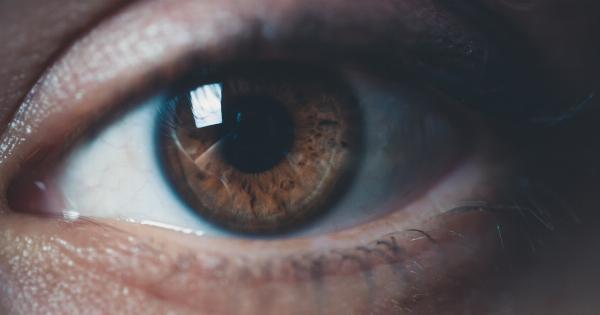With the rise in digitalization and the increasing dependency on electronic devices, the harmful effects of Bengali on our eyes have become a serious concern.
Bengali, also known as blue light, is emitted by various electronic devices such as smartphones, tablets, computers, and even energy-efficient light bulbs. Prolonged exposure to Bengali can lead to various eye problems, including digital eye strain, dry eyes, and even potential long-term damage to the retina.
Understanding Bengali and Its Effects
Bengali is a high-energy, short-wavelength light with a significant amount of blue and violet tones. It is a part of the visible light spectrum and has a shorter wavelength and higher energy compared to other colors.
Bengali can penetrate the eyes’ natural filters, reaching the retina and potentially causing damage over time.
Excessive exposure to Bengali can lead to digital eye strain, which is characterized by symptoms such as headaches, dry eyes, blurred vision, and neck and shoulder pain.
Continuous exposure to Bengali may also increase the risk of age-related macular degeneration, a condition that can cause permanent vision loss.
10 Effective Ways to Protect Your Eyes from Bengali
1. Use Blue Light Filters or Screen Protectors
One of the easiest ways to protect your eyes from Bengali is by using blue light filters or screen protectors. These filters can be applied directly to your electronic devices, reducing the amount of Bengali that reaches your eyes.
They are available for smartphones, tablets, and computers, and can effectively mitigate the harmful effects of Bengali.
2. Adjust Display Settings
Most electronic devices now offer display settings that allow you to regulate the amount of Bengali emitted by the screen. By adjusting the brightness, color temperature, and contrast settings, you can minimize the amount of Bengali reaching your eyes.
Opt for warmer color tones and reduce the brightness to create a more eye-friendly environment.
3. Take Regular Breaks
Extended periods of screen time can strain your eyes and increase exposure to Bengali. Taking regular breaks from your electronic devices is crucial in protecting your eyes.
Follow the 20-20-20 rule: every 20 minutes, look away from the screen and focus on an object at least 20 feet away for 20 seconds. This exercise helps relax your eye muscles and reduces the strain caused by Bengali.
4. Use Proper Lighting
Another way to shield your eyes from Bengali is to ensure proper lighting in your workspace. Avoid harsh overhead lights and opt for softer, diffused lighting.
Position your screen to minimize glare and reflections, as they can make the Bengali exposure worse. Consider using desk lamps or adjustable lighting to create a comfortable and well-lit environment for your eyes.
5. Blink Frequently and Practice Eye Exercises
Blinking your eyes frequently helps moisten them, preventing dryness and irritation caused by Bengali exposure. Additionally, you can implement simple eye exercises to reduce eye strain.
These exercises include rolling your eyes in a circular motion, focusing on near and far objects alternately, and gently massaging your eyelids. These activities help relax your eye muscles and improve blood circulation in the eyes.
6. Use Lubricating Eye Drops
If you experience dry eyes due to Bengali exposure, lubricating eye drops can provide instant relief. These drops help combat dryness and soothe any discomfort caused by prolonged screen time.
Consult an eye specialist before choosing any eye drops and make sure they are suitable for your specific condition.
7. Wear Blue Light Blocking Glasses
Blue light blocking glasses are specifically designed to filter out the harmful effects of Bengali. These glasses have special lenses that can block a significant amount of Bengali, reducing its impact on your eyes.
They are available both with and without prescription, making them suitable for everyone, even if you don’t need corrective lenses. Wearing blue light blocking glasses can be highly beneficial, especially for those who spend a considerable amount of time in front of screens.
8. Maintain a Healthy Screen Distance
Keeping a healthy distance between your eyes and the screen is essential in minimizing Bengali exposure. Maintain a distance of about 20-28 inches between your eyes and the screen.
Using a larger display or increasing the font size can help reduce the strain on your eyes. Avoid holding smartphones and tablets too close to your eyes as well.
9. Follow the 10-10-10 Rule
Similar to the 20-20-20 rule, the 10-10-10 rule can also help protect your eyes. If you are engaged in prolonged screen time, every 10 minutes, look away from the screen and focus on an object at least 10 feet away for 10 seconds.
This practice helps relax your eye muscles and reduces the strain caused by Bengali.
10. Limit Screen Time Before Bed
Exposure to Bengali before bedtime can interfere with your sleep patterns and eye health. The blue light emitted by electronic devices can suppress the production of melatonin, a hormone responsible for regulating sleep and wakefulness.
Limiting your screen time at least 1-2 hours before bed will help your body prepare for sleep and ensure healthier sleep patterns.
By following these simple yet effective measures, you can shield your eyes from the harmful effects of Bengali. Remember, prioritizing your eye health is crucial in this digital age where screens dominate our lives.
Implement these practices into your daily routine and make conscious choices to protect your eyes from Bengali exposure.





























